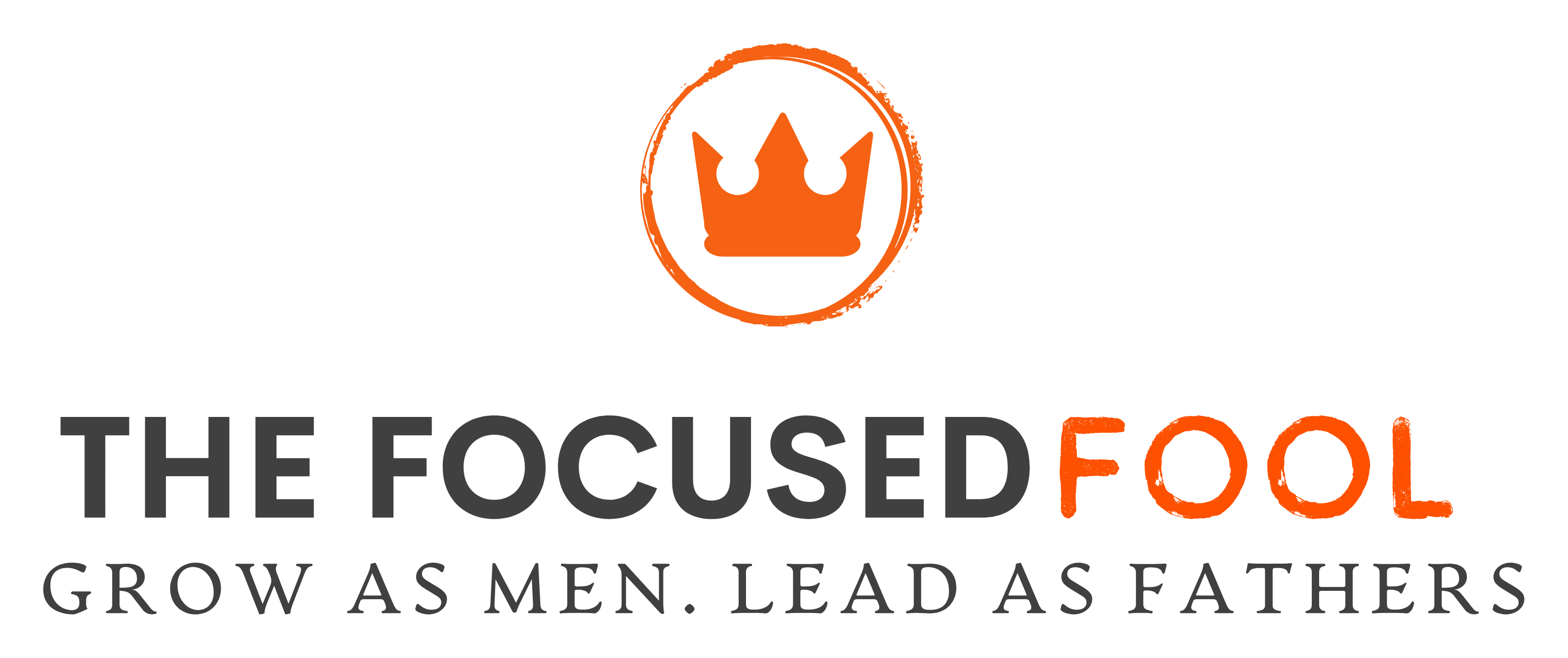How I’m learning to raise kids who stand for something—even when the world tells them to chase everything.
What Are We Actually Raising?
Last night I found myself reading a parenting book while my youngest sat three feet away eating sidewalk chalk. The irony wasn’t lost on me: there I was, highlighting passages about “nurturing cognitive development” while my kid was literally eating the driveway.
I used to think I was raising future CEOs. Now I just want them to share Goldfish crackers without going full WWE in the backseat. Progress, right?
It’s so easy to get caught up in the checklist: the grades, the trophies, the milestones that look good on paper. “Ezra is reading two grade levels ahead!” or “Olivia made the travel soccer team!” But somewhere between the honor roll bumper stickers and the carefully curated Instagram posts, I keep asking myself a question that won’t go away:
Am I raising a resume or a resilient human being?
✅ Takeaway: Don’t parent to impress—parent to connect.
The Resume Trap (And Why I Keep Falling Into It)
I’ve caught myself doing it more times than I’d like to admit. My son brings home a math test with a big A+ circled at the top, and I’m texting my wife before he’s even taken his backpack off. But when that same kid holds the door for an elderly woman at the grocery store? Sometimes that passes without comment.
The resume trap is everywhere. It’s the sideline conversation at Little League: “Johnny got into the gifted program, what’s your kid doing?” It’s the holiday newsletter humble-brags. It’s the gnawing worry that somehow your child’s kindergarten art project might be the thing that keeps them out of a good college.
Here’s what I’m slowly learning: The world pushes outcomes, but life rewards integrity. Twenty years from now, my kid’s SAT score won’t matter nearly as much as whether they can be trusted with a friend’s secret or a company’s money.
I can’t put “didn’t cheat at Monopoly even when Dad went to the bathroom” on a college application—but maybe I should. It might tell you more about their future success than any standardized test score.
✅ Takeaway: Praise character more than outcomes—or risk raising a perfectionist who needs applause to act right.
What Does a Backbone Look Like in a 7-Year-Old?
When I talk about “backbone,” I’m not suggesting we raise little contrarians who argue about everything. I’m talking about the quiet strength that helps a kid stand firm when standing firm matters.
In my own kids, I’ve seen glimpses of it—like when my daughter noticed a classmate sitting alone at lunch and chose to join them instead of her usual friends. Or when my son admitted he was scared to try the high dive but did it anyway, shaking on every step up the ladder.
Of course, for every character win, there’s the flip side. Like catching my kid in an elaborate lie about brushing his teeth—with an electric toothbrush that was suspiciously dry. Or watching them fold like a cheap lawn chair when a friend suggests something they know breaks our family rules.
Character isn’t a destination, it’s a muscle. And like any muscle, it doesn’t grow on participation trophies or YouTube highlights.
I once watched my daughter meltdown during a piano practice session because she couldn’t nail the intro to Hot Cross Buns. It was barely eight notes. But in that moment, it might as well have been Beethoven’s 5th. My instinct? Let her quit. Her instinct? Also quit.
But we didn’t.
And that was the rep. The muscle builder. The invisible win.
Angela Duckworth, who literally wrote the book on this stuff, calls it grit—that gritty combo of passion and perseverance that outlasts talent over time. In her words:
“Grit is living life like it’s a marathon, not a sprint.”
She argues that grit may matter more to a child’s success than raw intelligence or external praise and that one of the best ways to cultivate it is to let kids struggle, safely. Not to rescue them every time, but to walk with them as they figure it out.
👉 Here’s one of her best articles on raising resilient kids—a reminder that challenge isn’t something to fear, but something to train for.
✅ Takeaway: Backbone is built in small, ordinary moments of discomfort and choice.
Shifting the Focus at Home: 5 Small Wins That Actually Matter
Changing course isn’t easy. But I’ve been experimenting with small shifts that seem to be nudging our family culture toward backbone-building:
1. Praising effort over outcome
Instead of “You’re so smart!” when they ace a test, I’m trying “You worked really hard studying for that. That persistence paid off.” It’s subtle, but it moves the spotlight from a fixed trait to a choice they made—something they can replicate regardless of natural ability.
2. Modeling apology and ownership
Nothing gets a kid’s attention like a parent who can say, “My bad. I lost my cool there. Let’s try that again.” It’s uncomfortable, but every time I swallow my pride and own a mistake, I’m giving them permission to value honesty over appearing perfect.
3. Making space for hard conversations
When my son came home upset about a playground conflict, my first instinct was to solve it or dismiss it. Instead, I asked, “What do you think would be the right thing to do?” The conversation that followed was halting and imperfect, but he was practicing moral reasoning rather than just following my directives.
4. Encouraging discomfort and failure
Our family mantra is becoming “We do hard things—even if we stink at them.” My daughter wanted to quit piano after two lessons because “it’s too hard.” Instead of letting her walk away, we agreed she could reassess after ten lessons. Now she’s playing “Hot Cross Buns” with the best of them, but more importantly, she’s learning that initial discomfort isn’t a sign to quit.
5. Practicing family values rituals
Sunday nights have become our “weekend wins” dinner, where everyone shares something they’re proud of from the week—with the rule that it can’t be a grade or score or winning something. It was awkward at first, but now the kids come prepared with stories about helping a friend, trying something scary, or solving a problem creatively.
✅ Takeaway: Culture beats rules. Practice beats lectures. Ritual beats randomness.
Letting Go of the Highlight Reel
Full confession: I still find myself mentally comparing my kid’s B-minus in math to my friend’s child who’s apparently solving differential equations in the third grade. That pull toward external validation runs deep.
When I was growing up, I lived in a town that very much valued achievement. The trophy cases at school were always full, and conversations often revolved around who got into which college. But unlike some of my peers, I wasn’t the kid with the full resume. In fact, the pressure to achieve actually paralyzed me. I developed a self-protective strategy: better not to try my best than to give it my all and fall short. At least then I had an excuse ready when I didn’t succeed.
It took me years to learn that achievements don’t guarantee wisdom. Titles don’t equal truth. And a life spent either chasing validation or avoiding potential failure is ultimately hollow.
That’s not what I want for my kids.
There was a moment last year when my son could have taken credit for a group project that was mostly his work. Instead, he made sure everyone who contributed got mentioned. No one rewarded him for it. It didn’t go in any permanent record. But when he told me about it—almost as an afterthought—I realized: This is what matters. This quiet integrity when no one’s keeping score.
✅ Takeaway: Let go of someone else’s highlight reel so you can focus on your kid’s whole story.
This Isn’t About Lowering the Bar. It’s About Moving It.
To be clear: I’m not suggesting we stop encouraging excellence or achievement. Kids need goals and structure and yes, even healthy competition sometimes. But not at the expense of who they’re becoming.
What if we raised the standard for integrity, not just accolades? What if we celebrated moral courage as loudly as we cheer for touchdowns?
If my kid grows up and becomes kind, brave, and faithful to his word—I don’t care what letters come after his name. If they can stand firm when something matters, admit when they’re wrong, and choose the harder right over the easier wrong—that’s success.
Some days I get this right. Many days I don’t. But I’m trying to keep my eyes on the longer game: not just who they are in elementary school, but who they’ll become as adults making decisions no one will grade or witness.
✅ Takeaway: Set the standard high for integrity, not just accolades.
What Legacy Am I Really Leaving?
When I imagine my kids as adults, I don’t picture trophies or diplomas on their walls (though those are fine too). I picture them having difficult conversations with honesty and grace. Standing up when it would be easier to sit down. Seeking truth over comfort.
I want to raise kids who can lead when no one’s watching. Who don’t just look good—but do good, even when it costs them something.
To the other dads reading this: We won’t always get this right. There will be days we push too hard for the wrong things or miss chances to celebrate the right ones. But showing up imperfectly—with our values intact—might just be the best lesson of all.
After all, a parent with a backbone raises kids with one too.
✅ Takeaway: Your imperfect presence today is planting the values your kids will live out tomorrow.
Try This Today: Ask your kid: “What’s something you did this week that you’re proud of—even if no one saw it?” Then ask yourself the same question. You might be surprised by what you both discover.


Leave a Reply